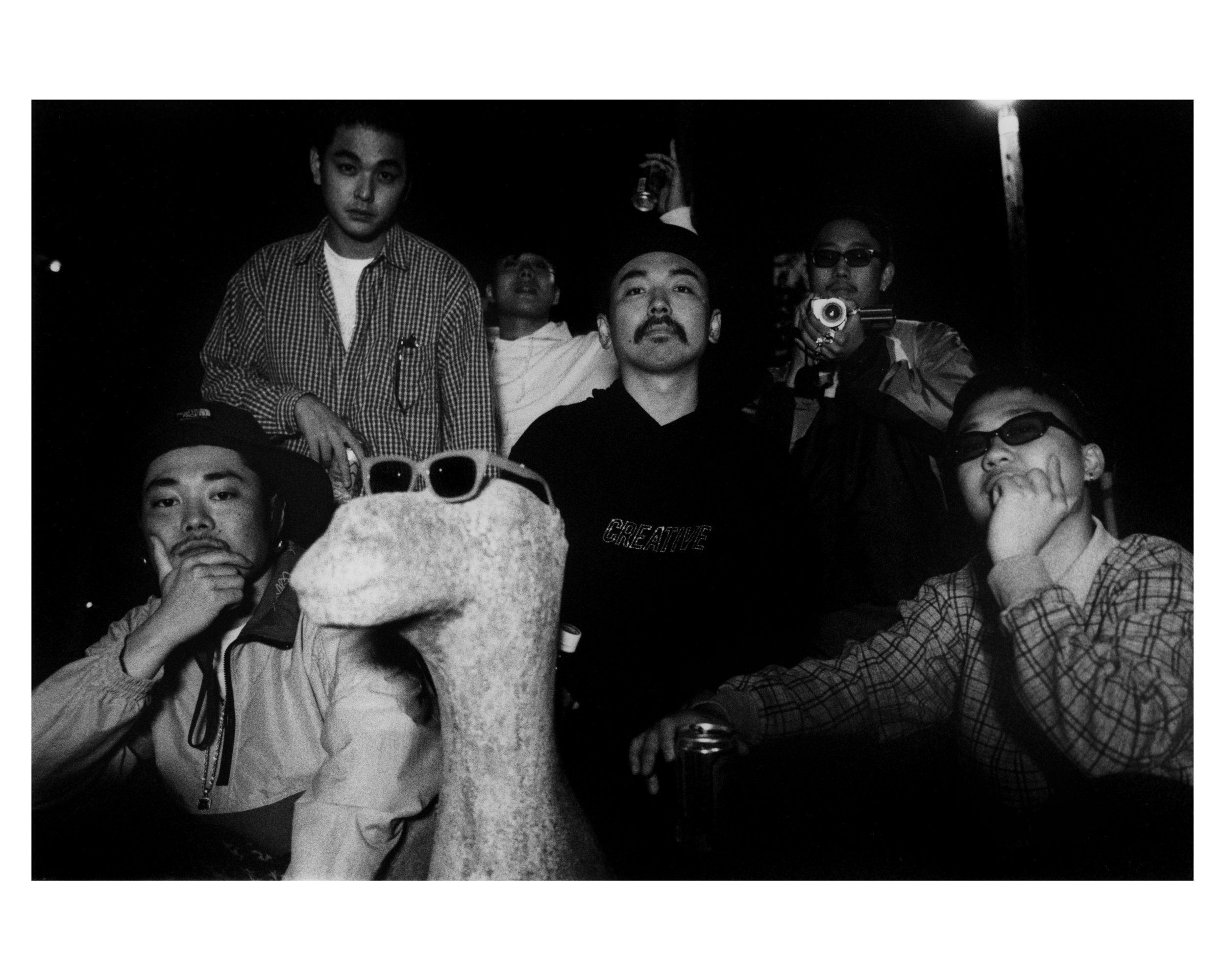T19 - The OG Tokyo Skate Team

The Tokyo 2020 Olympics saw Japanese athletes Yuto Horigome and Momiji Nishiya as the gold finalists in street skateboarding.
This event woke the pride in Japanese skaters, who have been active for decades now. Although skateboarding was prominent in the most populated cities of the US, like LA and New York City, Tokyo has some history with this street sport. Before skate clips were accessible with a few taps, skate crew T19, or alternatively, TOKYO SKATES, were shaping the backstreets of Harajuku and Shibuya.
T19 were constituted of 17 members at their peak, with legends like Hiroshi “HF” Fujiwara, famous for his impact on Urahara fashion and music; the late Hiroshi “Otaco” Otaki, leader of the crew; Yoshifumi “Yoppi” or “Yops” Egawa, a notable fashion designer. The crew takes its name from a shortened version of TOKYO SKATES or TS, “T” standing for Tokyo and “19” representing the position of S in the alphabet.
Originally, this skater collective started off in 1984 with just three members. Nevertheless, this sport was becoming increasingly popular with the introduction of skate magazines and brands from overseas, and with this boom, T19 became the first Japanese deck brand in 1992. Not only were they defining the skate scene for the country, but the T19 crew also stood out with their creative deck art. Designed by member Akira Ozawa and Yoppi, the vibrant yet simplistic T19 boards are timeless.
Their first YouTube skate clips are from 15 years ago, but have shots from 1994. These are still accessible today, through their channel “T19 Skates”, where they also ride fixed gear bikes, BMX bikes, and snowboard.
Nowadays, due to Japan’s strict rules, skateboarding is prohibited in most public areas. But that doesn’t stop skaters from doing what they do. That’s the main appeal T19 sought to promote: the freedom of skating and the feeling of belonging to a tight-knit community, with its own subcultures and various styles. Japan lacks enough skateparks but T19 has paved the way for Urahara skaters, and still to this day, skaters continue their legacy in the streets of Tokyo.
About the Author:
Mizuki Khoury
Born in Montreal, based in Tokyo. Sabukaru’s senior writer and works as an artist under Exit Number Five.



![PEOPLE OF THE APE! for Smart Max Vol. 2 [2001]](https://images.squarespace-cdn.com/content/v1/57825361440243db4a4b7830/1664168533768-OTX6EVT60QUMT8O6CXVI/308677209_497709145189756_6943226394915914090_n.jpg)
![It's a Sony World [Asayan 2000-5]](https://images.squarespace-cdn.com/content/v1/57825361440243db4a4b7830/1670033450483-G3AT5VAYGJ7KGCJ9VVQT/Asayan-2000-5-77.jpg)
